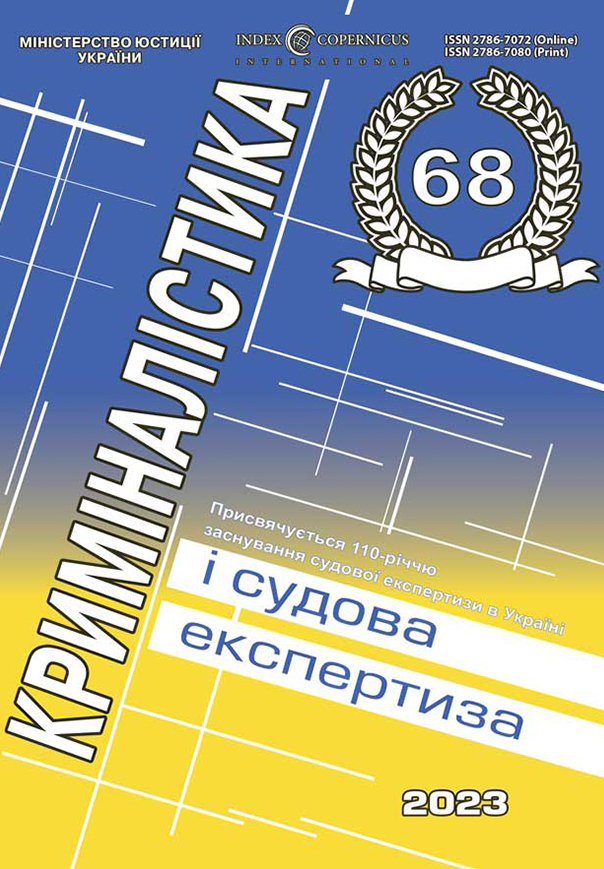DOI: https://doi.org/10.33994/kndise.2023.68.65
А. Moroz
The article highlights one of the important aspects of conducting forensic psychological examinations in cases involving crimes against sexual integrity or sexual freedom of an individual. It is emphasized that the mentioned illegal acts can have a long continuation, which is most often manifested in repeated corruption of a minor person(s). It is characteristic that under the specified circumstances, the child mostly does not actively resist. This may be due to a number of factors, including the formation of trust in the criminal, his perception by an authoritative person (perhaps one who replaces the absent figure of one of the parents), as well as the use of various methods of psychological manipulation in relation to a minor.
The article is intended to draw the attention of forensic experts and employees of judicial and investigative bodies to the need to study the peculiarities of the interaction of a criminal with a minor in the situation of committing lewd acts against a child, which is of a prolonged nature.
The criminal’s use of psychological manipulation, which can affect the child’s personal, cognitive, and emotional-volitional spheres, is highlighted. This is important for the objective determination by the expert of the victim’s ability to understand the nature and meaning of the actions committed against him and resistance in the situation of illegal acts, and can also be considered by the judicial and investigative bodies as a component of the method of committing the crime.
Methods of psychological manipulation are described and examples of their use are given. It is noted that psychological manipulation can be applied to adults.
The article highlights the individual characteristics of the child, which predict its higher susceptibility to the influence of psychological manipulation, and also outlines the factors that increase the likelihood of the child suffering from lewd acts.
Key words: depravity of minors, lewd acts, psychological manipulation, object of manipulation, subject of manipulation, methods of manipulation.

